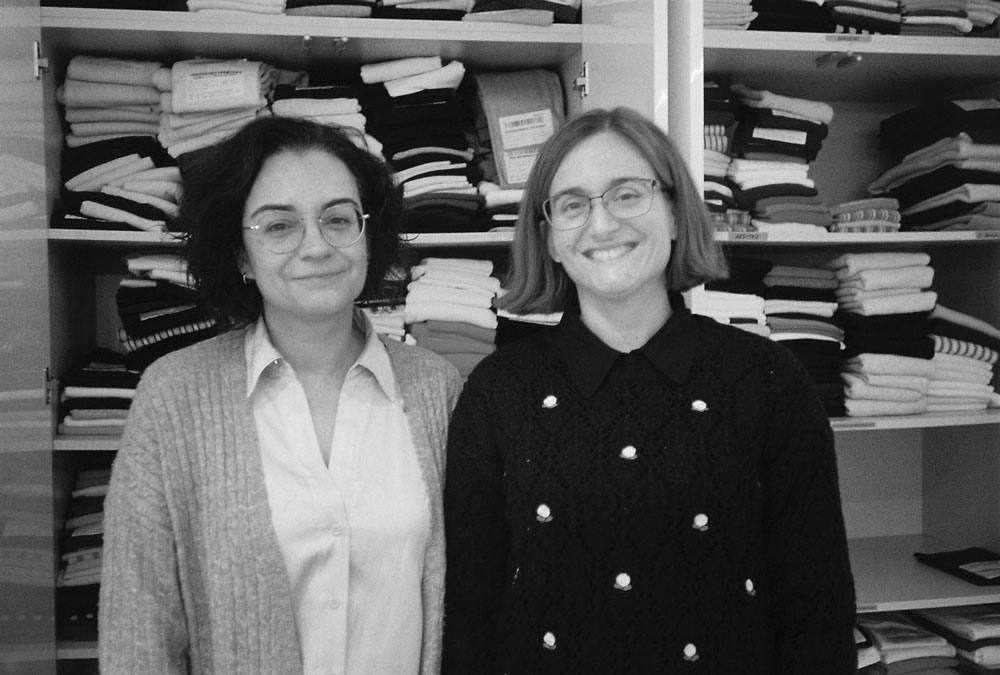

In the ninth edition of the TRIMALHAS JOURNAL, we highlight the Production Planning department, the area that bridges the gap between the sales department, production and customer support.
In this edition, we interview engineers Maria Pereira and Pedro Maia, who share a little of their daily lives at the factory and how they manage customer expectations of the Trimalhas product. This is a very important department in our company because, as well as planning our client’s orders, it is in constant communication with everyone involved in the sales and production process. The mission of this interview is to give you a little moreinsight into the behind-the-scenes of TRIMALHAS.
THE INTERVIEW
E: What is your mission in the Production Planning Department?
MARIA: When we receive new orders, the aim is to plan in a short space of time, allocating the knit to the machine best suited to the structure of that order. In this process, we try to ensure that the deadline is quick and achievable. Often this planning is done together with the person in charge of weaving production, because they have the technical knowledge, especially when it comes to new developments. It’s teamwork. My day-to-day consists of monopolizing the orders that are already in the pipeline and those that are being produced. My job is to check that the machines haven’t broken down during production, or that any yarns have suffered any problems during night-time production. These are some of the challenges that I try to control first thing in the morning when I arrive at the company. However, my main mission is to ensure that the raw materials are delivered on the date that the customer demanded when they placed their order. My purpose in this department is to create points of communication between the sales department, production and the finishing departments.
PEDRO: My job is to work closely with Maria and the Trimalhas production department. I bridge the gap between the production and sales departments and our client. I’m very focused on communication and managing expectations with our customer during the sales and after-sales process.
E: How is an order processed at Trimalhas?
MARIA: The order comes to us via an application containing all the specifications required by the customer: the type of knit, grammage, reference, number of kilos and the machine specified where the knit will be produced, as well as other descriptive information about our product. This data is then processed administratively by our planning team.
E: What are the challenges facing your department?
MARIA: Our biggest challenge is to manage priorities between what is urgent and what is not. I think this challenge is transversal to any industry. Our biggest difficulty is meeting the client’s expectations in the timeframe they need. Sometimes we’re talking about very tight timings.
PEDRO: Yes, I feel the same as Maria. Managing priorities within the ordering process is very complex. Because every order is important! 😀 Our mission is to get the order to our customer in the time they need it.
E: Now we’d like to know a bit more about your academic background and the weight it had in
accepting the challenge of taking on this project?
MARIA: I have a degree in chemical engineering with a master’s degree in processes and products. I’ve been working in an industrial environment since 2013, always linked to production engineering/planning. My experience has included the home textiles industry (yarn and terry dyeing), cork and the production of technical textiles for the automotive/military, pharmaceutical and footwear industries. In 2018 I completed a postgraduate course in Lean Management which included certification in Lean People Leadership and Six Sigma Green Belt.
PEDRO: I have a degree in Marketing Management and have always worked in the communications field. My training has given me the knowledge to manage customer communication in the order process and after-sales. I feel that my basic training gives me interesting tools for dealing with and managing the customer. I believe that communication is a very important weapon for dealing with challenges and deconstructing.
E: What skills do you think are relevant for a professional who wants to work in production planning at TRIMALHAS?
MARIA: This is a job that requires a lot of organization, communication and a huge ability to adapt to the constant changes imposed by the market. I think you have to like solving challenges because they are part of your job.
PEDRO: I echo Maria’s words. Resilience is the key to success in the job market. In our department, we also value teamwork because we need the different skills of each professional who makes up our team.



